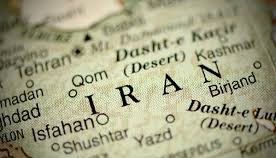 We live in an era of free access to information, to an infinite array of content, from literature and opinion through to news and entertainment. This has fundamentally changed the way in which the majority of us live and work and it gives us a fresh, up-to-date perspective on the world, yet the Iranian government denies all of this to its people. SpaceWatch Middle East contributing editor, Helen Jameson, provides her insight on Iran’s continuing ‘soft war’ on satellite television.
We live in an era of free access to information, to an infinite array of content, from literature and opinion through to news and entertainment. This has fundamentally changed the way in which the majority of us live and work and it gives us a fresh, up-to-date perspective on the world, yet the Iranian government denies all of this to its people. SpaceWatch Middle East contributing editor, Helen Jameson, provides her insight on Iran’s continuing ‘soft war’ on satellite television.
Delivery of content is often performed via satellite, which enables those areas that lack in terrestrial infrastructure to receive a choice of hundreds of TV and radio channels. Satellite is capable of multicasting, meaning that it has a very wide reach and can facilitate cross-border broadcasting of channels. For the majority of people, this is an extremely positive thing as it means that content can reach much farther afield than ever before, enabling broadcasters to transmit tailored, regional content that satisfies viewers who wish to watch content that meets their cultural and religious needs. Satellite has effectively transformed broadcasting and makes content accessible to all. However, this is not seen as a positive for the government of Iran and it has made the possession of any equipment associated with receiving and watching satellite television illegal. Satellite TV is the enemy, and is considered to be harmful to the morals of the Iranian population.
The Problem

For an insular country like Iran, satellite broadcasting is literally viewed as a ‘soft war’ against the authorities – in other words, any broadcast from outside Iran is viewed as a cultural war against the Iranian regime. Western channels such as Voice of America or BBC Persian are considered to be linked to intelligence arms of the U.S. and U.K. governments and therefore unacceptable viewing for Iranians.
The Iranian government has been accused many times of causing intentional interference or ‘jamming’ as it is commonly known, to disrupt the broadcast of these channels and to prevent them from reaching the Iranian people. In a world that has changed beyond all recognition due to access to information in the digital age, the Iranian regime is preventing the free flow of information in the country.
Speaking in July 2016, General Mohammad Reza Naghdi, commander of the Basij paramilitary force, said, “What these televisions really achieve is increased divorce, addiction and insecurity in society. Most of these satellite channels not only weaken the foundation of families but also cause disruptions in children’s education and children who are under the influence of satellite have improper behaviour.”
A 2012 report by Small Media, ‘Satellite Jamming in Iran: A War Over Airwaves’, focused on this ‘soft war’ and the juxtaposition of the government stance on satellite broadcasting and that of the Iranian people. It says: “There are at least 120 Persian-language satellite TV channels broadcasting into Iran from the diaspora, incomparable with the use of satellite TV in any other diasporic community in the world. For the Iranian government, these channels are ‘proof’ of the West’s engagement in a soft war against their rule.”
But the fact is that the Iranian people want access to the varied content that satellite brings to them. State TV is heavily regulated and content is sanitised. The Iranian people are only given the information that the government believes they should receive and this is produced in accordance with the state’s view of the world. In their report, however, Small Media states: ‘Conversely, many Iranians see these channels as means of entertainment, a place to acquire new information and keep up-to-date with the world.’

This is backed up by the sheer amount of satellite dishes that are in use across the country. For the majority the Internet is inaccessible, due to filtering, so access to a satellite dish can open up new information channels.
Just recently, SpaceWatch Middle East reported that Tehran’s police chief, General Lofti, told an audience at a Chastity and Hijab meeting held on 13 November 2016, that Iranian authorities have seized 713,546 satellite dishes, 923,299 low-noise block downconverters (LNB’s) and 10,766 satellite receivers over the past seven months. General Lofti also informed his audience that authorities have arrested 293 individuals accused of installing satellite dishes, and that over 40 gangs of satellite dish installers have been broken up or otherwise disrupted. This is hugely significant, as it illustrates just how popular satellite TV is across the country. However, those caught in possession of satellite TV equipment may be fined up to U.S. $2,800, according to a report in the Christian Science Monitor earlier this year.
Consequences
Though instances of jamming from Iran have been widely reported by broadcasters and satellite operators, the Iranian regime is yet to make any admission. However, these instances of jamming are damaging for all involved. Interfering with a satellite signal to take a channel off the air has significant financial consequences for both the broadcaster and the satellite operator. It can result in hundreds of thousands of dollars worth of damage for an affected channel. Not only this, but finding the manpower and locating where an instance of satellite interference has originated from can be very time consuming. Jamming can even cause broadcasters to look at using another frequency, especially after repeated occasions of jamming. This is costly, but if the broadcaster cannot effectively reach their audience, they may be left with little choice.
Finally, the viewer is obviously adversely affected. They cannot access the channels that they wish to watch but also, concerns have been raised about health implications. During their investigations, Small Media found that: “Without definitive proof, many claim that satellite jamming is having adverse medical effects on the Iranian people. As the Iranian authorities have never divulged the exact strength of the frequencies used to jam signals, there is no way to answer whether such claims have any factual basis.” These health concerns take many forms including dizziness, deafness, nervous disorders, cancer and infertility.
Action from the International Community
Satellite operators, broadcasters and industry bodies are working to mitigate the effects of intentional interference in Iran, but it is a complex problem. Technology is on the market today that can help to geolocate the perpetrators of jamming so that it may be stopped. However, the situation in Iran calls for a reaction from the international community. Perhaps, on top of using technology to locate and stop the interference, it should also be condemned and carry penalties that will truly deter jammers. This should all be backed up by an industry body with weight, such as the International Telecommunications Union (ITU). Is enough being done? It seems not.
Satellite TV provides Iranians with a window on the world. It allows them to experience cultures other than their own and to enjoy content that has not been created by the regime. It gives them some freedom in an otherwise restricted and insular society. Although there does seem to be some will within certain parts of the government to relax some of the tough rules that govern broadcasting in the country, this reality is a long way off. However, no matter what the penalty satellite equipment ownership carries, people will still risk it to enjoy the variety, information and perspective that TV brings.
Original published at: http://www.spacewatchme.com/2016/12/irans-soft-war-rages-on
 SpaceWatch.Global An independent perspective on space
SpaceWatch.Global An independent perspective on space

